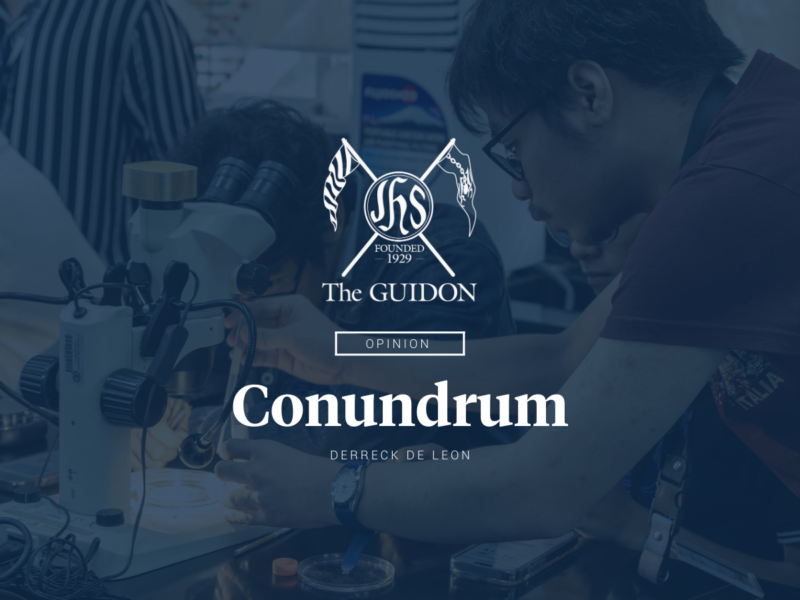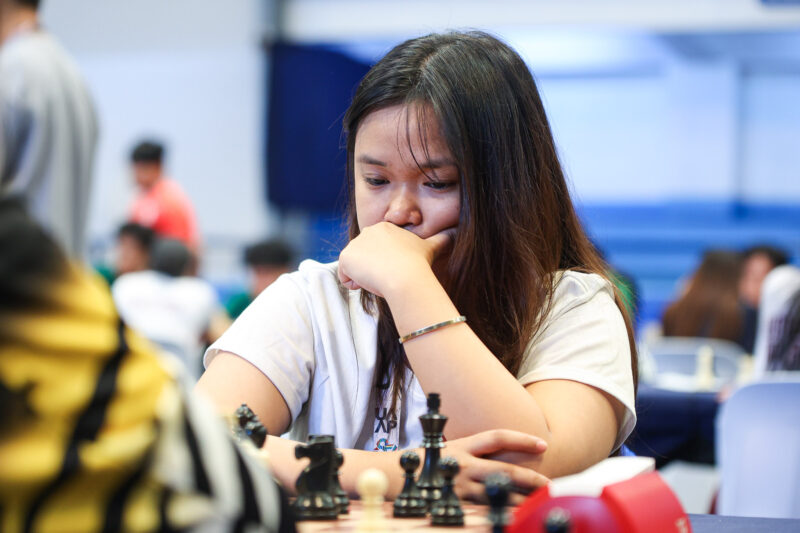FOR MOST faculty members of the Loyola Schools (LS), teaching is never just pointing at a blackboard and reciting lessons for students to mindlessly memorize. It also means taking on the noble challenge of investing in the well-being of their students.
Despite the joy of being more than a teacher in the classroom, LS faculty members remain embattled in issues that hound their research and pedagogy abilities.
While these problems have existed for years, the shift to the online setting has only highlighted these cracks in the system. Although the LS administration has remained active in addressing these concerns, there seems to be no easy solution for the unique challenges of the current setup. Thus, the struggle of balancing research and pedagogy—together with the ongoing pandemic crisis—remains.
Trial and error
Struggling with online learning issues has taken a huge toll on the mental health of LS community members. Dubbed as “pandemic trauma,” there is an emerging phenomenon that marks the recurring series of distressing experiences that COVID-19 brings. For LS community members, dealing with feelings of grief, loss, and anxiety—coupled with the challenge of surviving the pandemic every day—has left them in a perpetual state of exhaustion.
LS professors acknowledge the uncertainties brought by the pandemic and have taken on the challenge of monitoring their students in the best way that they can.
English Department Associate Professor Charlie Veric is one of these professors. Having worked in the Ateneo for about 20 years now, he says that his love of teaching and being with students who share the same passion for learning are what sustains him in the profession.
Despite this dedication, he shares that teaching literature in the online setup has been a struggle as so much gets lost in translation—both in teaching the lessons and interacting with the students. “It’s hard to read a [Zoom] room as it were, precisely because I’m mostly looking at blank profiles. I don’t exactly see actual faces,” he explains.
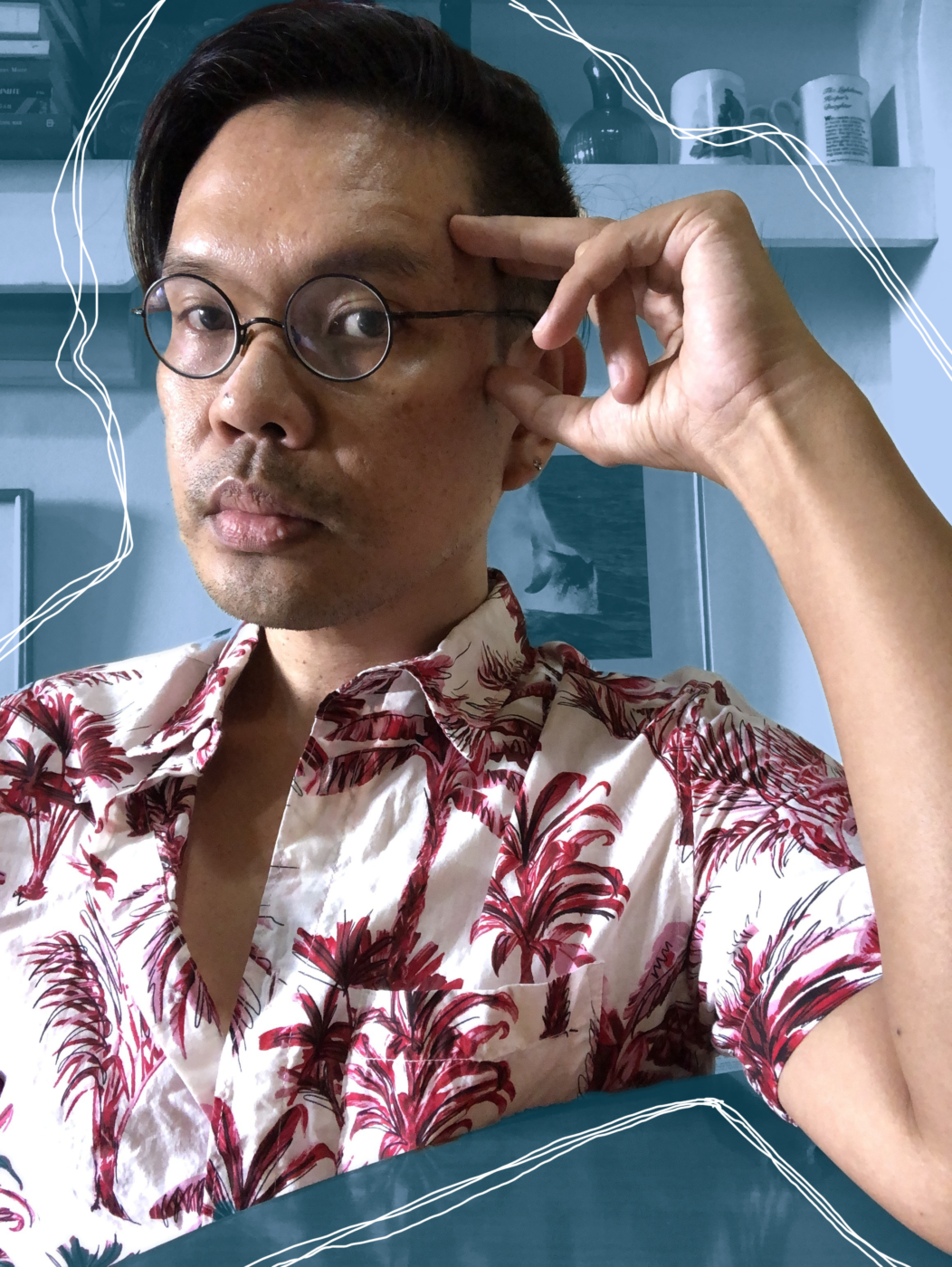
Veric also realizes his responsibility to look after his students’ welfare.“Along with it is the challenge that has to do with dealing with the psychosocial in making sure that psychosocial stress does not translate into an academic problem,” he shares.
Other faculty members share the same sentiments. Recognizing the struggles that her students are facing, part-time Creative Writing Lecturer Amparo Warren tries her best to teach her courses in the most student-friendly way possible.
“I’m now very lax because I really firmly want my students to know that health comes first, their families come first. I am engineering my course so that… anytime you can’t catch up for even a few weeks, the materials are always going to be there for you,” she explains.

Her biggest concern is navigating pedagogy in the current setup. “Prep work for modules takes days if you have to write a new module from scratch, and you want it to be substantial,” she shares.
For instance, Warren was tasked to conceptualize new classes, which also required her to formulate new syllabi. The lack of physical resources at her disposal—such as books from the Rizal Library—made the process more challenging. Given this limitation, she went the extra mile and resorted to buying some of the books for her classes.
While professors received training on conducting lessons online, Veric and Warren share that this still isn’t enough to handle the unique challenges of remote teaching. For them, the main struggle comes from adapting effective teaching methods specific to their disciplines. Warren adds that there is confusion on the teacher’s end on how online classes are supposed to be conducted, while students are struggling with how it’s supposed to be navigated.
“Many teachers still have a very different understanding of how a class is supposed to be consumed and delivered online versus how it’s supposed to be consumed and delivered face-to-face,” she explains.
Despite years of teaching experience that have trained them to address pedagogical concerns as they come, the pandemic has left faculty more disoriented than ever. Warren shares, “I feel like it’s as if we are all trying to build the plane at the very same time that we’re flying it … With credit due to the [administration], I know it’s something they’re doing, too.”
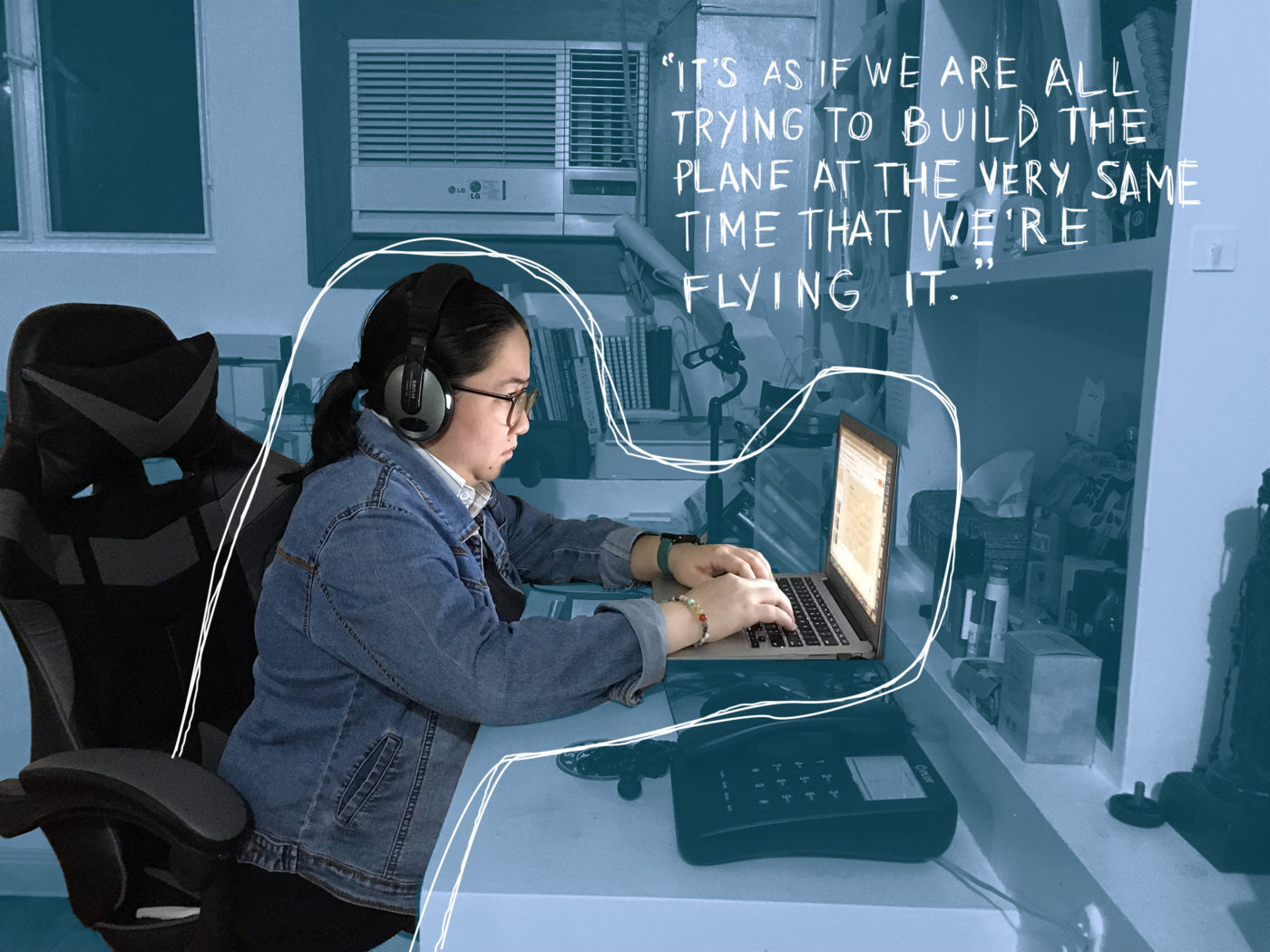
Cracks in the system
On top of remote learning woes, concerns of low salaries also plague faculty members.
Faculty members share that the University struggles to attract new professors since their salary and compensation are not as competitive as other universities. Veric believes that the Ateneo must address this concern for the University to maintain its quality of education. “Ateneo needs to get the best faculty to lead the courses, but if the salary is not competitive enough, then we’re losing out,” he says.
This issue continues to hound LS faculty members who are also dealing with the economic repercussions of the pandemic. Warren, for example, is currently juggling two jobs as a corporate employee and a part-time lecturer. Given the low compensation as a teacher, she considers teaching as a means to earn extra income.
The Ateneo Loyola Schools Faculty Association (ALSFA) is at the forefront of raising these to the LS administration.
ALSFA President Carmel Abao asserts that the ALSFA’s main role is to aggregate interests and lobby for the concerns of the LS faculty. She adds that the Association has a committee on faculty welfare that is mainly concerned with salaries and benefits.
However, as ALSFA members are professors themselves, it has been harder for them to fulfill their Association duties since teaching comes first. Abao admits that the transition to the online setup has made it harder for committee members to convene and address faculty-related concerns.
“We have a lot of internal problems because whatever is the [concern] of the day, or the week, we have to address those immediately,” Abao shares in a mix of English and Filipino.
Despite these shortcomings, faculty members share that these concerns do not mean that the administration is at fault for failing to address them. Veric reiterates, “I’d like to clarify that the way I see the administration is that [they are] not the enemy.”
Throughout the course of the pandemic, the administration has remained open to hearing their appeals on how to handle the crisis better and staying in open dialogue on solutions to address remote learning challenges. They also offer guidance on how to handle students who were afflicted with COVID-19.
“In the midst of all of the things that they already need to manage within the online class setup… it may be that they can only address the problems as they actually come. There aren’t a lot of problems that they can preempt,” Warren explains.
Dosages of hope
In light of the pedagogical concerns they have raised, faculty members appeal to the LS administration to look into implementing formal systems that can better support them. Beyond the general guidelines on navigating online teaching platforms, a communication system outside the LS Online Learning Community on Facebook will enable more communication among constituents.
Warren believes that a formal communication system may help professors in assisting their students better through these unprecedented times.
“Something that I wish could happen along the line, it’s that we could have more discussions about the practice of learning and what’s actually not working. So beyond [the] talk of [why] students don’t have their cameras on, [can] we talk about how when they come to class, they’re already exhausted?” she asks.
The launch of the University’s vaccination program last May 27 ushers in a more hopeful outlook on what’s to come as the community slowly eradicates COVID-19. With the unresolved cracks in the system, faculty members hope that these can finally be mitigated as the LS community emerges out of the pandemic.
“I think it will be a mistake to think that once the pandemic ends, the old problems will disappear. I think some of the old problems will continue, and there will be new problems as well, so how do we make sure that the institution remains strong as it confronts the old problems, and at the same time, tries to resolve new emergent problems?” Veric asks.
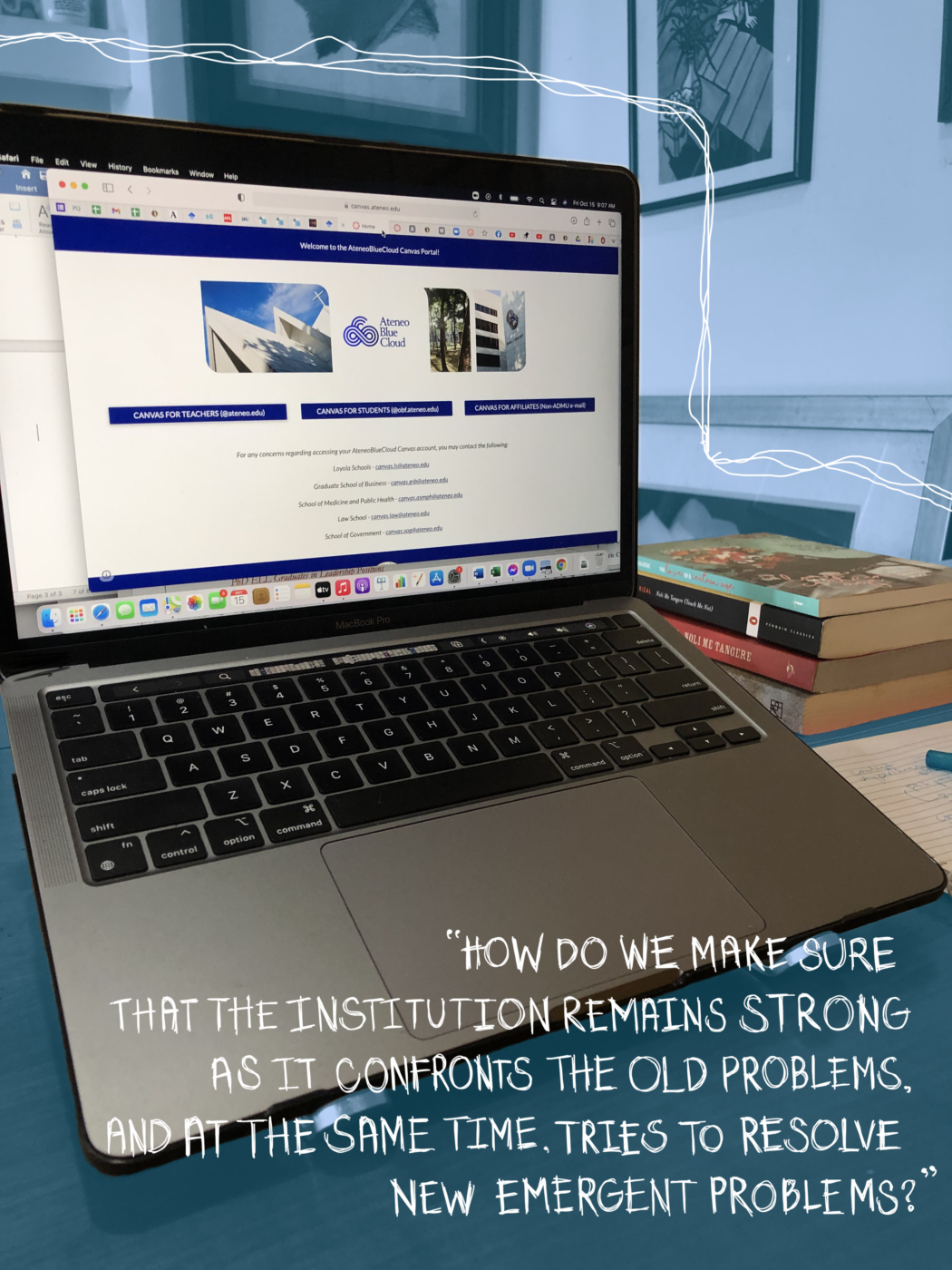
On this note, he remains hopeful that the Ateneo remains committed to serving its constituents better. He says, “The Ateneo as an institution is an evolving character, it continues to change, and that’s because the members of the University are invested in democracy, and we want the University to be a democratic institution一that there is proper representation, [and] that the concerns are heard.”





